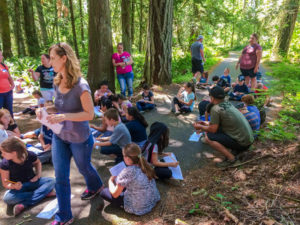FIELDSTEM:
- Takes students and teachers outside to become aware of and connected to the natural systems at the core of life on Earth.
- Exposes students and teachers to the career opportunities driving the economy in their community by collaborating with local organizations, agencies, and industry.
- Works to create a classroom culture that welcomes and includes diverse perspectives and values and discusses pros and cons of solutions with civil discourse.
- Integrates core subject standards around authentic, locally relevant projects to engage students and teachers in how learning can be applied to the real questions, problems and issues of their communities.
- Aligns the efforts of formal educators and nonformal community collaborators to improve student learning.
- And works toward a day when all students in their role as learners have voice and are active productive scientists and citizens in their communities.
Our professional development model demonstrates and embeds research-based instructional practices that encourage educators toward continual improvement in FieldSTEM delivery. Our FieldSTEM Implementation Continuums, at the classroom, school and district level, identify components of FieldSTEM implementation and provide indicators for three levels of implementation: 1. Exploring, 2. Emerging, and 3. School of Excellence. To learn about upcoming professional development opportunities, please see our events calendar.
More About PEI
We are leading the FieldSTEM movement in Washington by connecting the natural resource, agriculture, and environmental sectors to education and providing businesses with tools to effectively engage students in career connected learning that will help them attain employment and thrive in future jobs. By collaborating with marginalized communities including rural, low-income, and Tribal communities, we promote diverse and inclusive models of learning that lead to equity, one of our core values. At the same time, we are helping to bridge the gap between major workforce needs that go unmet in the natural resource, agriculture, and environment sectors, and student perception that there are no jobs available in their communities.
Our resources and tools include customizable, integrated curriculum guides and performance tasks that are designed by education experts and aligned to the Common Core State Standards (CCSS) and Next Generation Science Standards (NGSS). As we serve more educators, schools, and districts throughout the state, we are continually developing and refining our tools and resources to meet teacher needs.
To learn more about implementing FieldSTEM in your classroom, school, or district, please contact our Associate Director of Columbia Basin & Coast Region, Megan Rivard, at [email protected]; or our Associate Director of Puget Sound Region, Molly Griffiths, at [email protected].
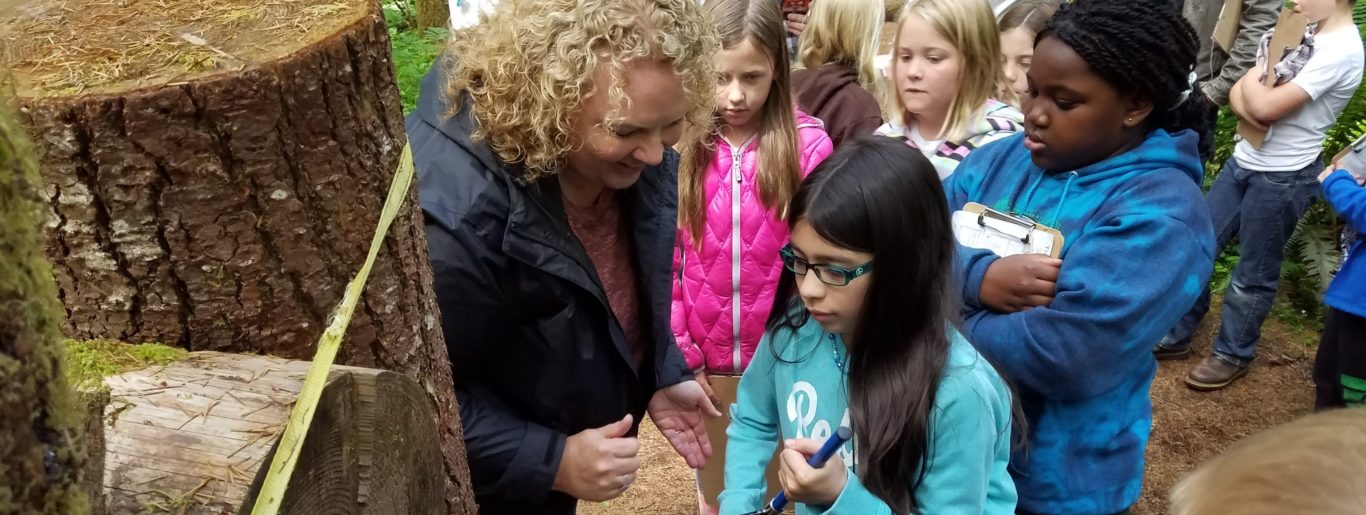
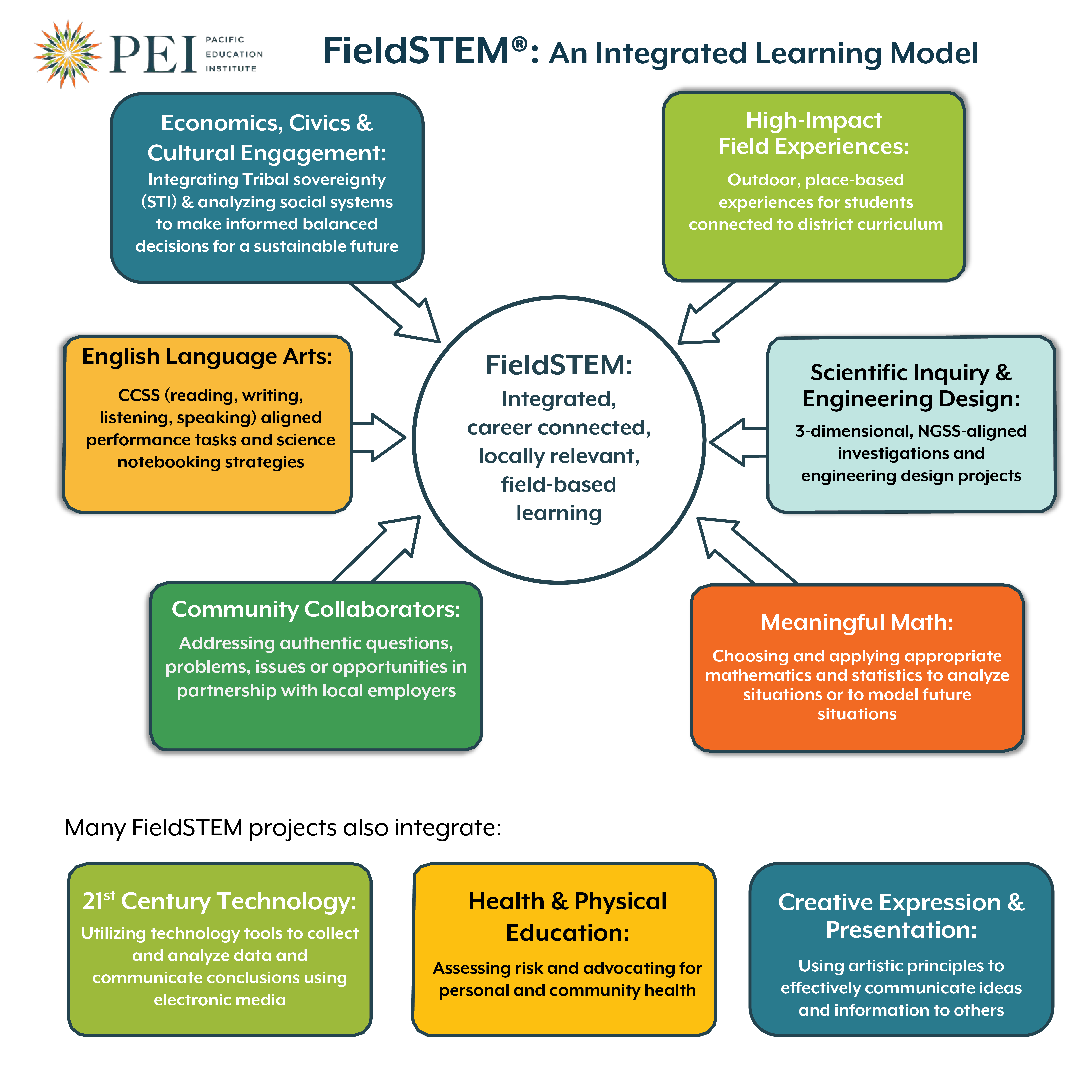
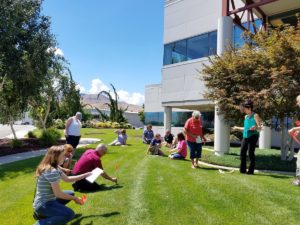 PEI is committed to inclusivity and to modeling inclusive practices in our work. This includes actively expanding the diversity of our staff and board and inviting others to participate with us as we work to build a more equitable landscape for learning so that all of Washington’s students see themselves as part of the solution to building sustainable communities.
PEI is committed to inclusivity and to modeling inclusive practices in our work. This includes actively expanding the diversity of our staff and board and inviting others to participate with us as we work to build a more equitable landscape for learning so that all of Washington’s students see themselves as part of the solution to building sustainable communities.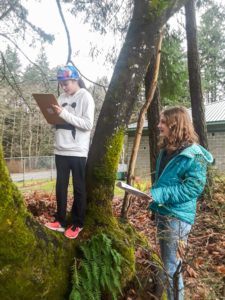
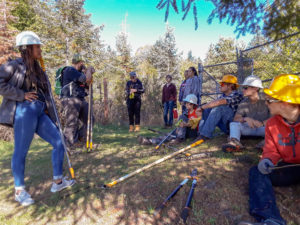 s that support them. Career connected learning (CCL) is an initiative developed through partnerships between educators, workforce development professionals and employers seeking articulated pathways describing how the knowledge, skills, and abilities a student gains in pre-K-12 schooling articulates with the needs to successfully become employed or move into post-secondary programs (certifications, Associate, Bachelor, Masters, and Doctoral degrees).
s that support them. Career connected learning (CCL) is an initiative developed through partnerships between educators, workforce development professionals and employers seeking articulated pathways describing how the knowledge, skills, and abilities a student gains in pre-K-12 schooling articulates with the needs to successfully become employed or move into post-secondary programs (certifications, Associate, Bachelor, Masters, and Doctoral degrees).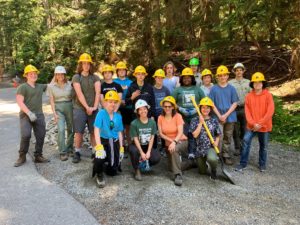
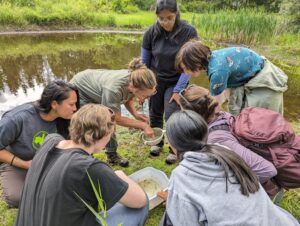
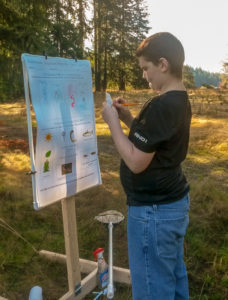 Just as no two individuals are the same, no school, school district or community is the same as any other. We celebrate this diversity at PEI. Our FieldSTEM Model is designed to be a framework for research-based inclusive educational practices. When PEI works with educators, there is always space to make sure that the product or practice is locally relevant, designed to connect to the individuals and the community – the place – where it will be implemented.
Just as no two individuals are the same, no school, school district or community is the same as any other. We celebrate this diversity at PEI. Our FieldSTEM Model is designed to be a framework for research-based inclusive educational practices. When PEI works with educators, there is always space to make sure that the product or practice is locally relevant, designed to connect to the individuals and the community – the place – where it will be implemented.